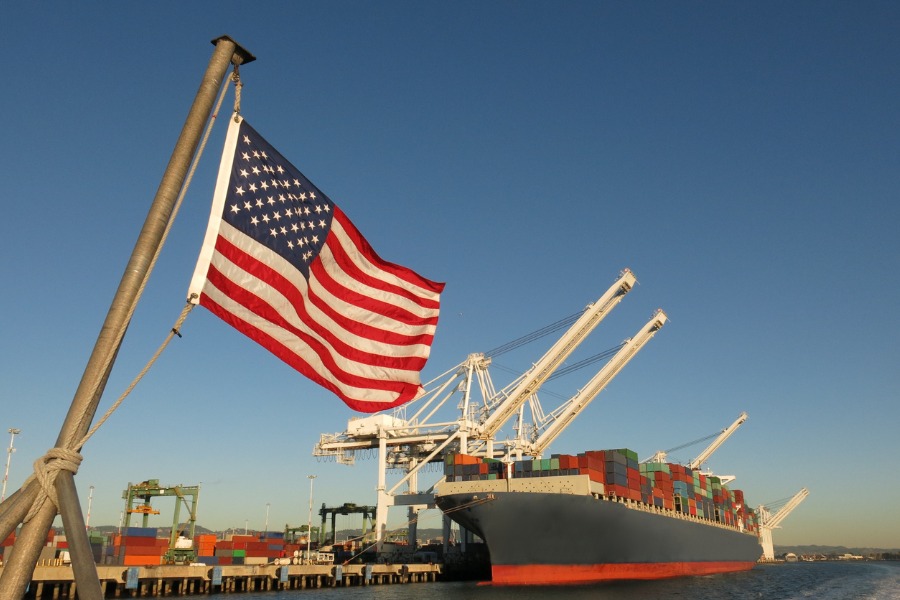

Dozens of US industry associations urged the White House to help restart stalled talks between East and Gulf coast dockworkers and port operators, saying a strike is the last thing the economy needs amid already strained global supply chains.
Earlier this month, contract negotiations broke down between the International Longshoremen’s Association and the US Maritime Alliance. The current agreement, which covers about 45,000 dockworkers at facilities including six of the 10 busiest US ports, expires Sept. 30.
“We call upon the administration to immediately work with both parties to resume contract negotiations and ensure there is no disruption to port operations and cargo fluidity,” according to a letter to President Joe Biden on Tuesday from more than 150 groups including the US Chamber of Commerce, the National Association of Manufacturers and the National Retail Federation.
Global maritime trade is already under strain linked to Houthi attacks on ships through the Red Sea. Container carriers are forced to take the longer route around southern Africa, stretching capacity, lengthening lead times for new orders and pushing up freight rates.
“With all these existing challenges, the last thing the supply chain, companies and employees — all of which rely on the movement of goods, both imports and exports, through our East Coast and Gulf Coast ports — need is a strike or other disruptions because of an ongoing labor negotiation,” the letter stated.
Even the threat of a port walkout can be disruptive as shippers seek alternative routes for their imports and exports, the letter stated. That’s a reference to cargo diverted away from West Coast ports during an extended round of contract negotiations through 2023 that ended with a six-year deal announced in September.
“We are starting to see a shift back to West Coast gateways, where a long-term contract is in place, especially as we enter the busy peak shipping season,” according to the letter.

AI is no replacement for trusted financial advisors, but it can meaningfully enhance their capabilities as well as the systems they rely on.

Prudential's Jordan Toma is no "Finfluencer," but he is a registered financial advisor with four million social media followers and a message of overcoming personal struggles that's reached kids in 150 school across the US.

GReminders is deepening its integration partnership with a national wealth firm, while Advisor CRM touts a free new meeting tool for RIAs.

The Texas-based former advisor reportedly bilked clients out of millions of dollars, keeping them in the dark with doctored statements and a fake email domain.

The $3.3 trillion tax and spending cut package narrowly got through the upper house, with JD Vance casting the deciding vote to overrule three GOP holdouts.
Orion's Tom Wilson on delivering coordinated, high-touch service in a world where returns alone no longer set you apart.
Barely a decade old, registered index-linked annuities have quickly surged in popularity, thanks to their unique blend of protection and growth potential—an appealing option for investors looking to chart a steadier course through today's choppy market waters, says Myles Lambert, Brighthouse Financial.
